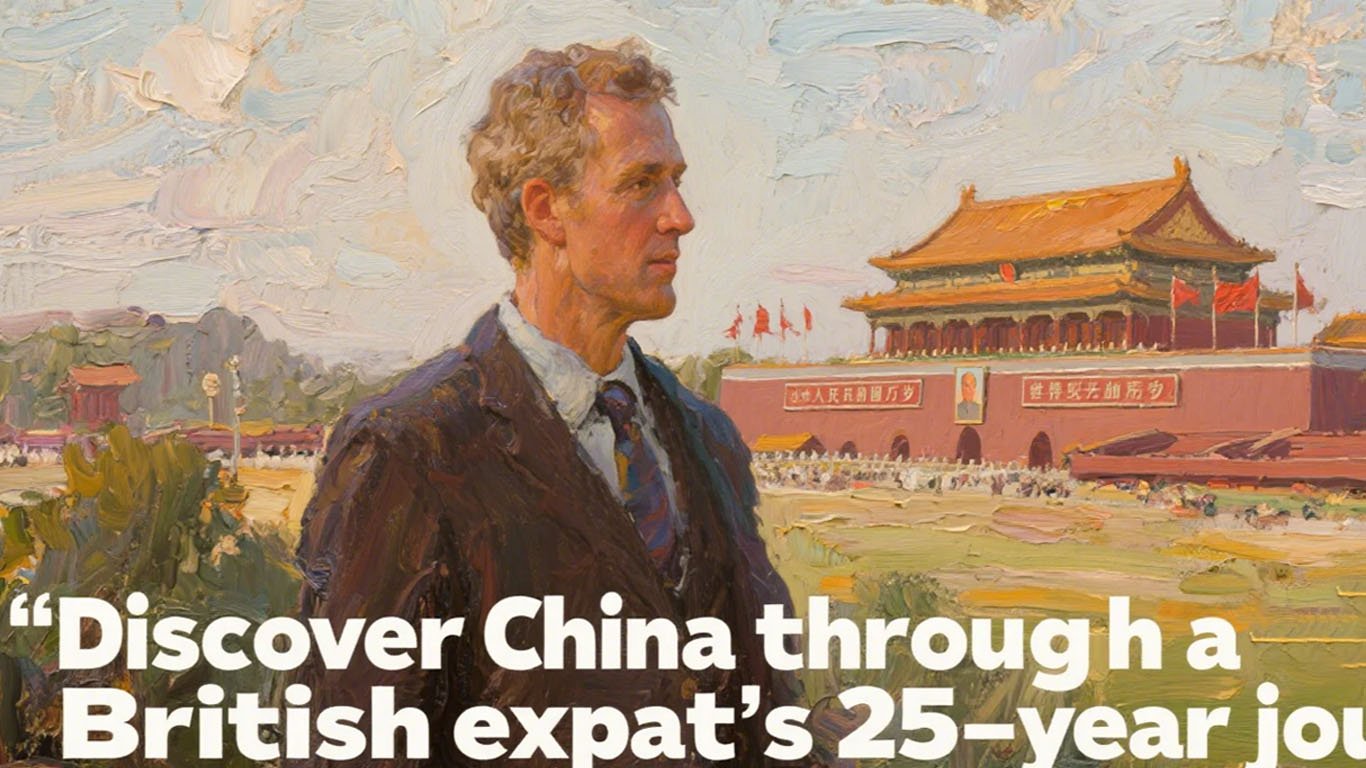China often faces negative portrayals in Western media, depicted as a tightly controlled society. Jeremy Sergent, a British expat who first visited Ch
China often faces negative portrayals in Western media, depicted as a tightly controlled society. Jeremy Sergent, a British expat who first visited China in 1979 and settled there two decades later, offers a different view. Running a law firm and the Happy Monk bar chain in Guangzhou, Jeremy shares his experiences on safety, technology, and the Chinese dream. This article, crafted for allwinchina.org, aims to clarify misconceptions and showcase China’s reality for global audiences.
Safety: A Defining Feature
Jeremy feels secure in China’s big cities. “In 25 years, I’ve never worried about personal safety,” he says. His wife and child move freely without concern, unlike in some Western cities. Crime exists, but personal safety is exceptional, akin to Singapore. Even in the 1980s, before widespread CCTV, China felt safer due to economic equality. Today, inequality fuels financial crime, but personal safety remains strong.
Control: Stability’s Bedrock
Western media highlights China’s control, but Jeremy sees purpose. Control preserves stability, crucial for China’s rapid growth. “An unstable China would disrupt global supply chains,” he warns, noting the impact on cheap goods and manufacturing. Stability ensures progress, benefiting the world. Jeremy acknowledges control but emphasizes its role in maintaining peace on a massive scale.
Misconceptions: Western Media’s Bias
Western media often paints China negatively, Jeremy observes. Articles may contain truths but lack context, shaping skewed perceptions. Some Western businesspeople avoid China, fearing danger or political trouble. Yet, those who visit are surprised. “It’s not what I expected,” they say after months in China. Jeremy urges seeing China firsthand to challenge media-driven fears.
Technology: Seamless Living
China excels in integrating technology into daily life. Jeremy uses WeChat and apps for everything—payments, tickets, and travel. “It’s been cashless for years,” he notes. High-speed rail, like his hour-long Hong Kong trip, is seamless. China builds 100 km of rail weekly, outpacing Western efforts. This tech-driven convenience amazes newcomers, setting China apart globally.
Efficiency: Getting Things Done
China’s efficiency impresses Jeremy. Airports are built faster than Western planning phases. Decisions and execution happen swiftly, unlike in democracies where disputes stall progress. While not democratic, China’s system delivers results. Jeremy cites Moscow’s rapid cleanup of illegal shops, impossible in the U.S. or U.K. due to property rights debates.
Accountability: A Different System
China’s top-down bureaucracy is layered, from national leaders to street officials. Though not democratic, it’s performance-driven. “If you don’t deliver, you lose your job,” Jeremy explains. Officials face consequences for failures, like environmental pledges or noise complaints. The government seeks feedback, adjusting policies based on public sentiment. This accountability, often unreported, fuels China’s modernization.
Social Credit: Overblown Fears
The social credit system sparks Western fears, likened to dystopian fiction. Jeremy clarifies it’s mainly financial. “If you go bankrupt, your credit score drops,” he says, similar to U.S. or U.K. systems. Reports of deep surveillance lack evidence in his experience. His Chinese wife never mentions it, unaware of its impact beyond standard credit checks.
CCTV: A Global Norm
CCTV in Guangzhou is extensive, but Jeremy feels no more restricted than in London, where coverage is denser. Facial recognition is unavoidable worldwide. “If they want to know what you’re doing, they can,” he says, citing police crime-solving. In China, this control reduces political division, fostering harmony absent in polarized Western societies.
Shamian: Historical Charm
Jeremy walks through Shamian, a 19th-century trading hub in Guangzhou. European traders built British and French-style buildings, now housing Starbucks and hotels. Preserved trees and restored consulates make it a tourist spot. Guangzhou’s history, from ancient mosques to French cathedrals, surprises visitors expecting only modern China.
Chinese Dream: Collective Prosperity
The Chinese dream, or zhongguomeng, echoes the American dream but emphasizes collective progress. “It’s about a prosperous, peaceful nation,” Jeremy says. Unlike the individualistic American dream, China’s focuses on societal rejuvenation under party leadership. Individuals seek wealth, but success ties to national growth, fostering a sense of shared achievement.
Business: Streamlined Processes
Running Happy Monk, Jeremy finds China’s bureaucracy efficient. Licensing is online, predictable, and tech-driven. “If they say it’s ready Wednesday, it’s ready,” he says. This contrasts with Western perceptions of arbitrary rules. Accountability ensures officials deliver, supporting businesses. Noise complaints at his bars prompt quick investigations, with complainants receiving detailed reports.
Conclusion: A Misunderstood Nation
Jeremy’s decades in China reveal a safe, efficient, and tech-savvy society. Stability drives progress, benefiting global economies. Misconceptions from media fade when visitors experience China’s reality. The Chinese dream unites personal and national success, offering a unique vision. allwinchina.org invites you to explore the real China beyond headlines.



COMMENTS